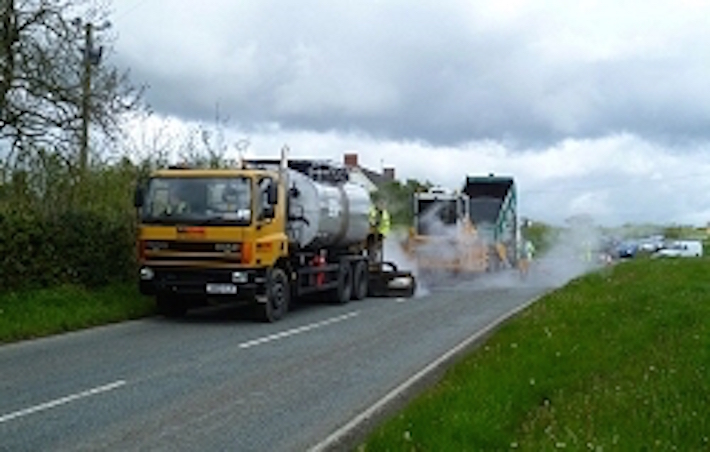Road users are being advised that Pembrokeshire’s annual road surface dressing programme will begin in the middle of May.
Surface dressing involves a layer of bitumen being sprayed on to the road surface, followed by one or more layers of hard stone chippings.
Once the dressing has settled down after two or three days, the surplus chippings are swept up by a mechanical sweeper.
The process restores a good skid resistance to smooth or slippery roads, and prevents water from seeping into the road foundation and weakening it, reducing the chances of potholes developing.
The surface dressing programme will operate throughout the whole of the County.
The operation for South Pembrokeshire will start at Narberth and work towards Tenby, Pembroke and Milford Haven and then from Dale to Haverfordwest.
The operation for the North will start from Clynderwen and Crymych and work towards St.Davids.
The works will be carried out by Pembrokeshire County Council’s Engineering Works division.
The advantages of surface dressing is that it is up to ten times cheaper than other methods of restoring road surfaces and traffic can be allowed to run on the new surface almost immediately, avoiding lengthy closures.
Unfortunately there are some disadvantages. Motorists need to drive very slowly to prevent chippings being dislodged, and inconsiderate motorists driving too fast can cause chippings to damage other vehicles and property.
To be successful, surface dressing relies on warm dry weather, and for this reason work is carried out from May to September.
This ensures that physical changes to the bitumen take place and the chippings become embedded into the road surface which ensures long term stability of the new surface.
The County Council will:
- Where practical, give advance notice of works to residents and drivers.
- Provide advisory and warning signs from the time of treatment to the time the road is ready for normal use.
- Sweep the road of surplus chippings once the new surface has settled down.
- Ensure that surface dressing is carried out to a high standard.
- Minimise hazards and disruption to traffic through correct use of traffic control.
- Ensure that complaints are investigated and appropriate action taken.
What you can do:
- Ensure that your vehicle is not left on the road to be treated.
- Drive carefully to the recommended speed limit on recently treated roads, or when signs are displayed.
- Never overtake and try to avoid sudden braking and turning on newly treated roads
- Take care walking near newly treated surfaces as it is possible to get bitumen on your shoes. This can be easily removed by the use of solvents such as turpentine or white spirit.
Help keep news FREE for our readers
Supporting your local community newspaper/online news outlet is crucial now more than ever. If you believe in independent journalism, then consider making a valuable contribution by making a one-time or monthly donation. We operate in rural areas where providing unbiased news can be challenging. Read More About Supporting The West Wales Chronicle






















